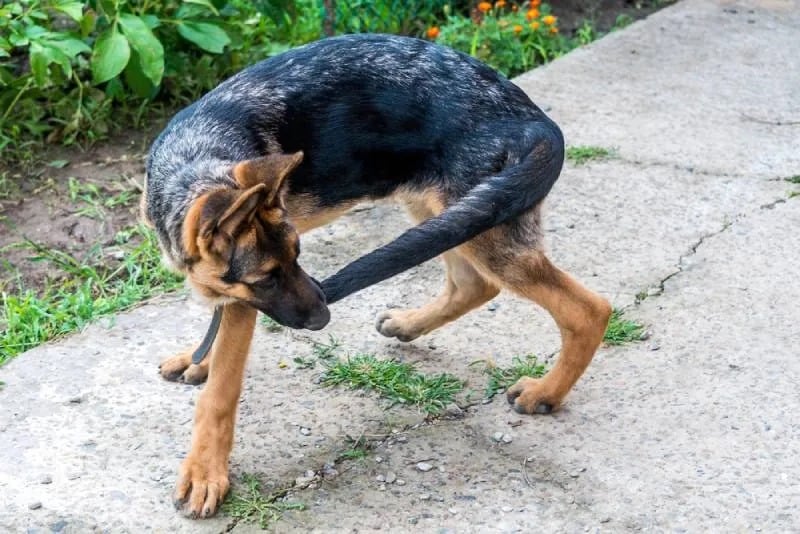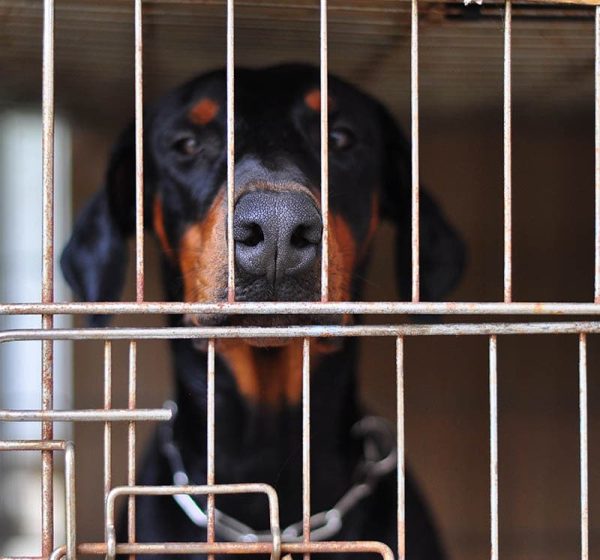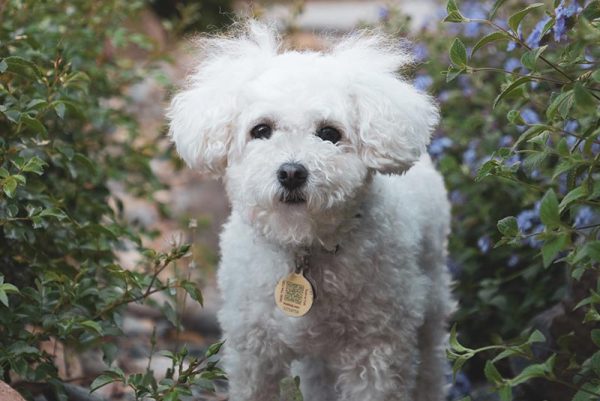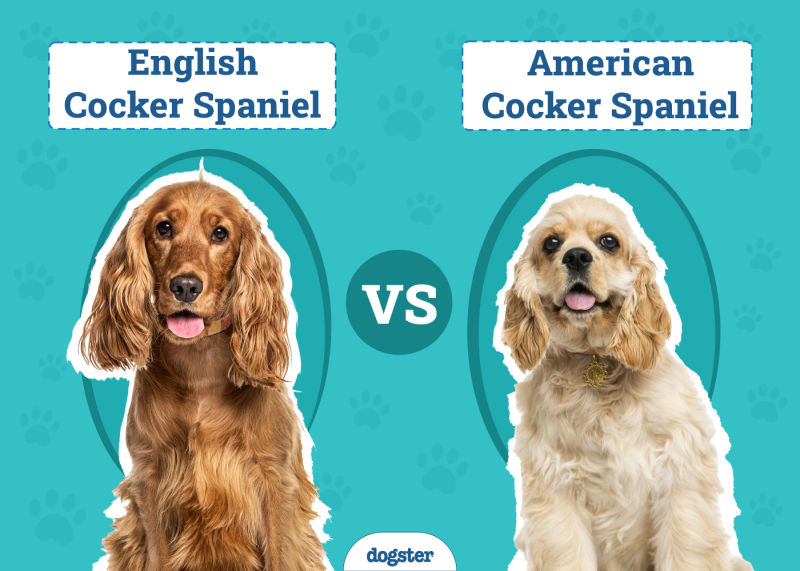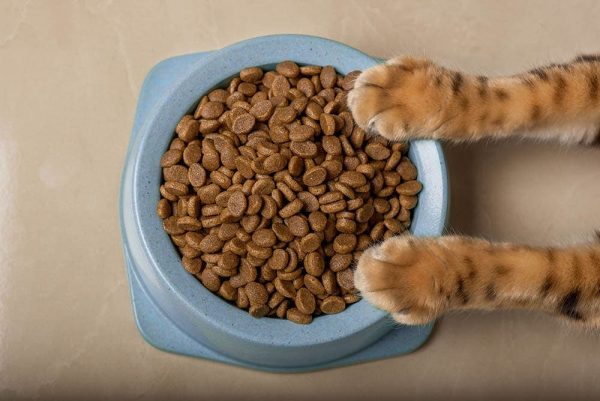Disclaimer: This article has been reviewed by a qualified veterinarian using information available at the time of review. The knowledge of canine medicine is continually evolving. This article is not intended to replace consultation with a veterinarian for your specific pet. It does not take into account your pet’s unique circumstances.
Tail chasing may seem like a funny canine quirk, and while it can certainly be a sign of mere playfulness or curiosity, dogs engage in this behavior for various reasons. Instead of dismissing tail chasing, it’s important to observe for clues as to why your dog may be doing it, especially if the behavior is compulsive, as it can sometimes signal a medical issue, stress, or anxiety.
Let’s explore all the reasons why dogs chase their tails and when it’s a good idea to head to the vet for a checkup.

The 9 Tail Chasing Causes
Tail chasing can be innocent, but it can also be a sign of a deeper issue that needs addressing. Here, we’ll explain each cause further to give you an idea of what might be behind your dog’s behavior.
1. Curiosity
Inquisitive puppies sometimes chase their tails because they have bags of energy and are curious about anything and everything. Imagine it as your puppy seeing their tail for the first time and thinking “Hmmm, what’s this? Let’s investigate!”
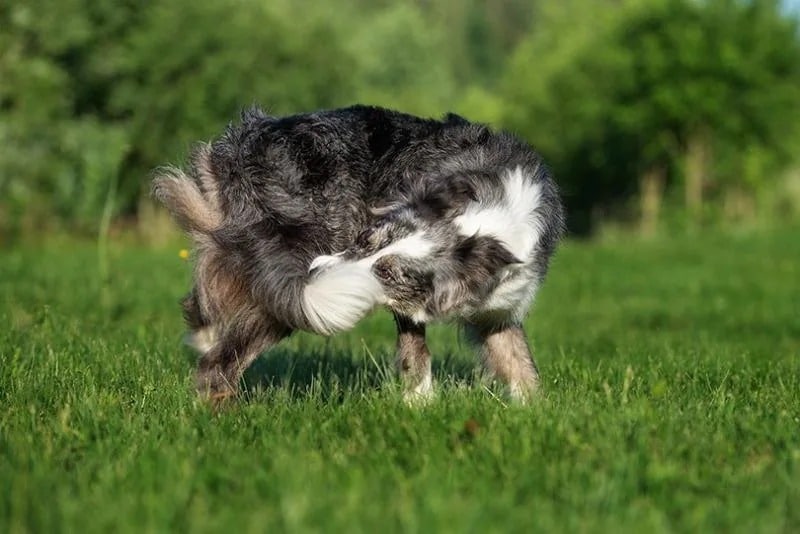
2. Playfulness
Occasional tail chasing could happen just because your dog is feeling playful. As long as it doesn’t become a habit, a spin around here and there doesn’t usually mean anything deeper is going on.
3. Boredom
With no way to release pent-up energy, bored dogs sometimes chase their own tails out of frustration. If you notice your dog chasing their tail often, evaluate whether they’re getting enough exercise and mental stimulation.
In addition to walking your dog daily, a few play sessions are sure to be greatly appreciated, as are interactive toys like puzzle feeders. It’s also a good idea to let your dog explore and sniff about in new environments now and again.

4. Stress and Anxiety
When dogs get stressed, they sometimes engage in repetitive behaviors (stereotypic behavior) as a soothing mechanism. In this case, tail chasing provides an outlet for their nervous energy. These kinds of stress-related behaviors are especially common in dogs without enough enrichment.
On the other hand, dogs with an appropriate outlet for their energy (walks, play, etc.) and who live in a loving, warm, low-stress environment are less likely to engage in repetitive behaviors.
5. Separation Anxiety
Separation anxiety is when a dog becomes inordinately anxious about their guardian leaving, even if only for a short time. It can be caused by things like having been abandoned by previous guardians or not having learned to spend a healthy amount of time alone from a young age.
Leaving a dog with separation anxiety can trigger various stress-related behaviors that can vary from dog to dog, but tail chasing could certainly be one of them. Speak to a vet if you’re concerned that your dog may be experiencing separation anxiety.
If you need to speak with a vet but can't get to one, head over to PangoVet. It's our online service where you can talk to a vet online and get the advice you need for your pet — all at an affordable price!

6. Canine Compulsive Disorder
This is a form of canine-compulsive disorder. It can be associated with early separation from the mother, shy demeanor, and the effects of hormones.
Dogs that display compulsive tail chasing are less likely to be tempted away by redirection techniques, and even if you manage to get their attention temporarily, they’re likely to start chasing their tail again shortly after.
The canine-compulsive disorder is often treated with medication and management techniques, so speak to a vet if you suspect your dog is experiencing this issue.
7. Reinforced Behavior
Tail chasing can be a form of attention-seeking reinforced by a dog’s human companions. For example, if you give your dog attention when they chase their tail, or otherwise encourage the behavior, perhaps with treats, your dog learns that this behavior gets a response from you.
Even if you tell your dog off, a negative response is still a response in your dog’s eyes, so they may continue the behavior every time they want you to pay attention to them. To break this, you’ll need to start ignoring the behavior and only give your dog attention when they’re calm.
Furthermore, redirection techniques can be useful for dogs who chase their tail for attention. One option is to play with the dog before the tail chasing begins. Another is to have your dog work on a training command like “sit” or “shake a paw” before they have the chance to start tail chasing. When redirecting, take care not to inadvertently reward the tail chasing behavior. Work with a veterinarian or behaviorist if your training does not appear to be working.
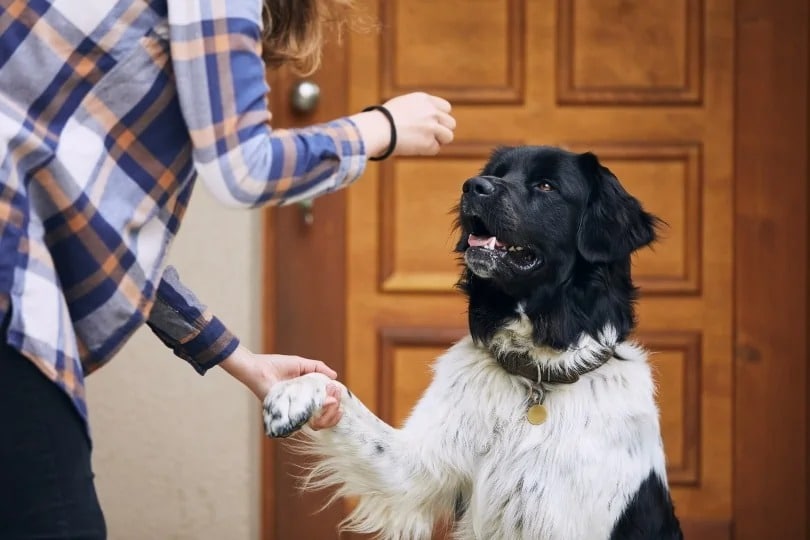
8. Medical Conditions
If your dog is feeling itchy or sore around the tail, they may chase it in an attempt to bite or lick the area. Conditions that could cause this include parasites (like fleas, ticks, and worms), allergies, rectal irritation, anal gland issues, cancer, injury, and pain. A seizure disorder may also contribute to tail chasing.
A medical condition is more probable if your dog suddenly starts tail chasing and biting, or has any other signs like scooting the bottom, rashes, yelping, or other behavioral changes.
9. Old Age
While puppies sometimes chase their tails out of curiosity, older dogs impacted by a decline in mental acuity may chase their tails out of confusion or stress. Speak to your vet about how to manage cognitive decline in older dogs—there are some treatments that may help.


Should I Get My Dog’s Tail Docked?
No! Tail docking (not tail amputation, see below)—which involves cutting or crushing part of the dog’s tail to remove it, often for cosmetic reasons—is unnecessary and causes suffering to puppies and dogs subjected to the procedure, typically without anesthesia.
Furthermore, as explained by the British Veterinary Association, a dog’s tail is used as an important form of communication and expression, and tail docking deprives the dog of this and does not cure compulsive behaviors.
Tail amputation should only be carried out if deemed medically necessary by a vet. If this is the case, the procedure will be carried out surgically in a sterilized environment under anesthesia.

Final Thoughts
While tail chasing isn’t always cause for alarm, there are some situations in which it would be wise to get a vet’s input, like if you suspect a medical issue or if your dog chases their tail a lot. In some cases—like when a dog doesn’t have enough daily playtime and chases their tail out of boredom—a few simple routine changes are all that’s necessary.
Featured Image Credit: Tatyana Blinova, Shutterstsock
